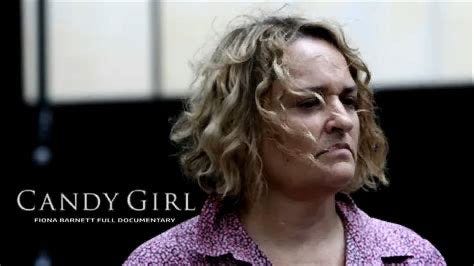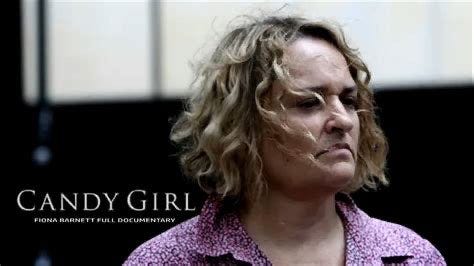TIP Movie Night Presents: Fiona Barnett: "Candy Girl" | Full Documentary (2016)
Overview, Key Insights, and Core Concepts
TIP Movie Night Presents: Fiona Barnett: "Candy Girl" | Full Documentary (2016)
Overview:
Meet Fiona Barnett, an Australian survivor of the elite worldwide network of satanic pedophiles that control world politics, from as young as 5 years old she was prostituted, like thousands of other children, at dozens of pedophile parties, which were attended by at least three former Prime Ministers at Parliament House Canberra.
The network, which Fiona maintains still operates today, included high-ranking politicians, and police and judiciary members.
She had reported the allegations to multiple health professionals, NSW Police in 2008 and the Royal Commission into Institutional Responses to Child Sexual Abuse in 2013.
"My experiences were horrific beyond words... but the way I've been treated for reporting the crimes I witnessed and experienced has been far worse than my original abuse experiences"
Child sex abuse advocacy group, Survivors Network of those Abused by Priests Australia (SNAP), said it has heard from several other alleged victims who say they have witnessed similar offences of rape, torture and murder perpetrated by the most senior people in Australia.
"We're not talking about an isolated incident and an isolated survivor. It's a pattern, it's widespread and it's continuing today," SNAP leader Nicky Davis said.
Many survivors had spoken and given evidence to police and the abuse royal commission but were mostly ignored.
The group urged the federal government to launch an investigation into the elite pedophile network.
Key Insights:
Systemic Failures in Reporting Abuse:
Barnett vehemently criticizes the healthcare professionals and law enforcement that failed to adhere to mandatory reporting; this notion underscores wider systemic failures within institutions that are supposed to protect vulnerable youth. It reflects a culture of silence surrounding child abuse.
Psychological Toll on Survivors:
Barnett articulates the profound psychological impact of being a survivor, suggesting that societal scrutiny often heightens trauma instead of facilitating healing. The narrative reveals the intense emotional labor survivors face as they seek justice and healing.
Call for Accountability:
The assertion that authorities must take responsibility for perpetrators rather than focusing solely on victim testimony represents a paradigm shift needed in legal and societal responses to abuse. Barnett advocates for collective accountability among the elite, implying that the failure to act perpetuates violence against children.
Pedophilia as a Distorted Power Dynamic:
Barnett’s testimony suggests that the pedophile ring represents a network fortified by power and privilege that distorts societal structures and institutions, impacting those at the margins. This calls into question how power dynamics in society can facilitate such heinous crimes.
Public Perception and Government Responsibility:
Barnett’s assertion that Australians regard child protection as a top concern juxtaposes with government inaction, illuminating a chasm between public sentiment and political responsibility. It challenges the integrity and motives behind governmental actions on child welfare matters.
The Difficulty of Moving Beyond Trauma:
Barnett also reflects on the societal tendency to dismiss claims when survivors do not provide precise details or when they display emotional responses. This speaks to the challenges victims face in preserving their narratives in a cultural atmosphere rife with skepticism.
Urgency for Legislative Reform:
Through her experiences and historical context, Barnett’s insights reveal a dire necessity for reform in laws regarding child protection, underscoring the need for reforms that prioritize victim support and radical changes to prevent further abuse.
Core Concepts:
Child Sexual Abuse and Its Societal Implications:
Barnett’s experience is emblematic of a broader issue facing Australia and many societies worldwide—a pattern of child sexual abuse that remains hidden due to systemic flaws. The enormity of her claims draws attention to the gaping lapses in legal frameworks that should protect the most vulnerable members of society.
Cultural Silence and Complicity:
The reluctance to confront truths surrounding abuse reflects a culture of silence, where victims are often blamed while offenders thrive in positions of power. Barnett’s testimony advocates for breaking this cycle of silence, demanding a collective societal awakening and support for survivors.
Mental Health Challenges Following Trauma:
The psychological ramifications of enduring such abuse exacerbates issues victims face when recounting their stories. Society’s treatment of survivors—including dismissal and emotional invalidation—harms their healing journeys and highlights the need for compulsion to understand trauma-informed care.
Political Accountability and Public Awareness:
Barnett’s narrative underscores the imperative for political and social accountability in addressing child abuse. It illustrates the importance of amplifying public voices in holding governmental entities and influential individuals responsible for child welfare.
Ethical Imperatives in Child Protection:
The responsibility of institutions and individuals to prioritize ethical imperatives relates directly to Barnett’s insistence on the need for diligent action from lawful bodies to secure the rights and safety of children over the interests of powerful entities.
Transformative Justice Models:
The call for enhanced models of justice that focus not only on punitive actions against offenders but also restorative practices for victims establishes a framework for future child protection efforts. Barnett’s testimony indicates a need for transformative justice that might empower victims and rebuild trust in societal systems.
TIP Movie Night Presents: Fiona Barnett: "Candy Girl" | Full Documentary (2016)





